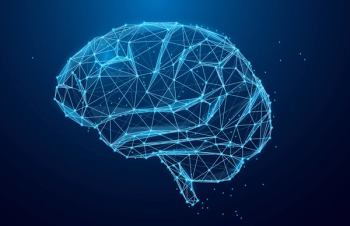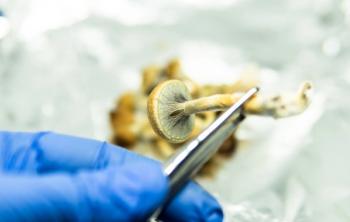
What to Expect if MDMA-Assisted Psychotherapy Gets Approved by the FDA
Learn more about the potential of MDMA-assisted psychotherapy.
3,4-Methylenedioxymethamphetamine (MDMA) is a psychopharmacological agent with effects that include the enhancement of empathy, prosocial behavior, euphoria, extroversion, feelings of closeness to others, stimulant effects, and mild psychedelic effects. It is a potent releaser and reuptake inhibitor of presynaptic serotonin, dopamine, and norepinephrine.
MDMA was synthesized by Merck laboratories in 1912 as a homeostatic agent, though its utility in psychotherapy was not explored until the 1970s. However, its use was banned in 1985 by the Drug Enforcement Agency. After failing to prevent its illegalization, Rick Doblin, PhD, founded the Multidisciplinary Association for Psychedelic Studies (MAPS) in 1986, with the purpose of researching and training in the responsible use of MDMA and other psychedelics. Thanks to the efforts of this institution, there is now a phase 3 clinical study for posttraumatic stress disorder (PTSD). MDMA-assisted psychotherapy has been shown to be beneficial in the management of PTSD, eating disorders, and anxiety disorders. Inspired by this work, Australia legalized MDMA-assisted psychotherapy in June 2023. However, the treatment is not yet covered by Australian Medicare. Nonetheless, there are some private clinics that offer treatment on an out-of-pocket basis. In general, the treatment can last 2 to 8 weeks and involves 2 sessions of MDMA-assisted psychotherapy and 10 to 12 sessions of integration psychotherapy, costing around $20,000. As such, few individuals have had access to this therapy so far. If MDMA gets approved by the FDA in the United States, it will not become a feasible treatment option for most patients until the treatment is covered by Medicare and other insurance companies.
As psychedelics other than ketamine (usually prescribed without psychotherapy in most clinics) are still not legal, there is no standardization of the requirements needed to become a psychedelic-assisted psychotherapist. However, there are several websites and institutions offering education psychedelic-assisted psychotherapy, with MAPS as the primary organization providing education on MDMA-assisted-psychotherapy.
As a psychiatrist with a clinical and research interest in psychedelics, I had the privilege to attend a 5-day educational event on MDMA-assisted psychotherapy. Our course offered an illustrative example of its effect. On our first evening, the instructors delivered a master class on the most updated scientific and clinical research.
In the following days, we reviewed recorded videos of patients treated with MDMA-assisted psychotherapy, many of whom were war veterans. Often, these individuals had trauma prior to enrolling in the army. Others had PTSD from sexual trauma or grief. All of them suffered from severe and debilitating PTSD. Before taking MDMA for the first time, patients had 1 or 2 preparation sessions where they would be interviewed and educated about MDMA and what to expect during the session. The therapy involved administering a lower dose of 50 to 60 mg of MDMA. Two hours later, the patient would be offered a booster. The patient would lie on the bed, covering their eyes while listening to music—preferably without lyrics. The MDMA therapy session lasted about 6 hours, with 2 therapists involved. Vitals and patient safety were consistently monitored.
The patient was invited to cover their eyes and allow their “inner healing intelligence” to guide them in their recovery. When ready, they could uncover their eyes and discuss their experience with the therapist. The therapists facilitated, encouraged, and supported the healing experience, using a nonstructured, dynamic therapeutic style. Elements of dynamic, humanistic therapy, and internal family systems were hinted at in the different videos. Under MDMA, patients accessed and processed their traumatic experiences. MDMA created a state of well-being in which a patient could tolerate this process, though it could still be very painful, requiring the therapists to help and moderate this process.
Following the first MDMA session, patients returned to their therapists' office for integration therapy, where they talked about their experiences, made sense of them, and explored the impact the therapy had on their lives. As per protocol, patients were scheduled for a second, higher-dose of 100 to 120 mg MDMAsession with the option of receiving a booster later. The work between the patient and the therapist continued, allowing the patients to explore further into their trauma, which would later integrate in the final sessions. Following each session's videos, time was allocated for questions and answers, providing an opportunity for mutual learning. Our teachers were friendly, humble, and inviting. It was beautiful to witness the significant improvement in the patients' PTSD scores and subjective well-being by the end of the MDMA therapy.
After this course, it became clear to me that MDMA-assisted psychotherapy can become a powerful, pleasant, and effective way of helping patients with PTSD. Psychotherapy played a key role in their recovery, and the role of the therapists was essential. I cannot conceptualize a safe way of treating patients with MDMA without psychotherapy. Unfortunately, due to MDMA still being illegal, I did not get a chance to have an experiential learning experience with MDMA. Hopefully, this will change soon.
However, psychedelic experiences and culture go beyond the ingestion of a psychedelic substance. Research has shown that psychedelic-assisted psychotherapy has the potential to become a third-line treatment for patients with severe and debilitating depression and PTSD who do not improve with more typical psychiatric treatments. In my opinion, psychedelic-assisted psychotherapy could represent an alternative for individuals who are less interested in conventional psychiatric treatments. In addition, psychedelic-assisted psychotherapy can stimulate personal growth in virtually any human willing to explore their inner psyche in a unordinary state of consciousness. I believe that in the right set and setting, psychedelic-assisted psychotherapy can help the breakdown of a person’s narcissistic defenses and enhance compassion towards oneself, other human beings, and our planet.
Dr Espí Forcén is founder of
Newsletter
Receive trusted psychiatric news, expert analysis, and clinical insights — subscribe today to support your practice and your patients.







